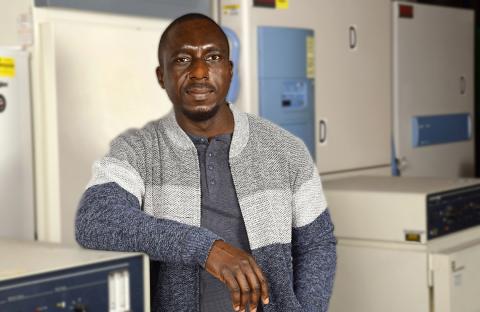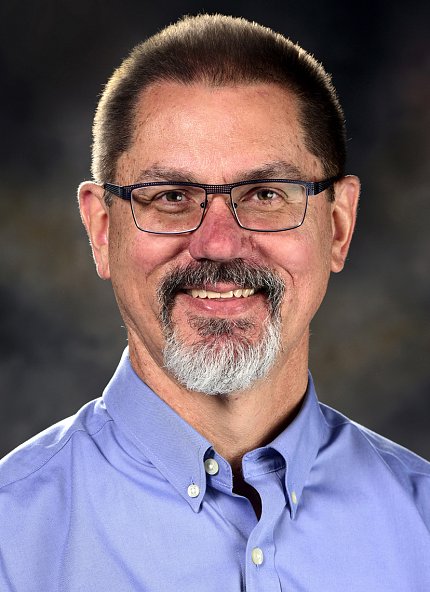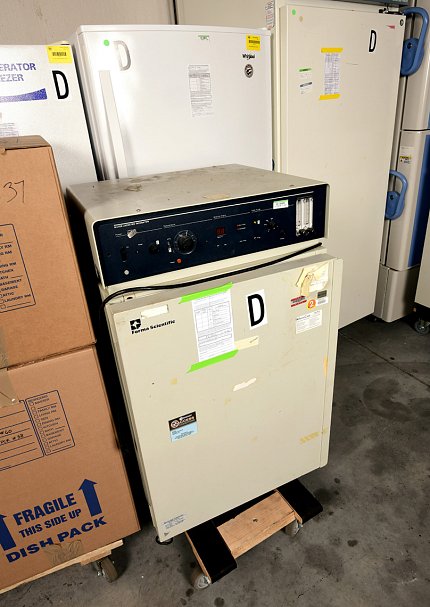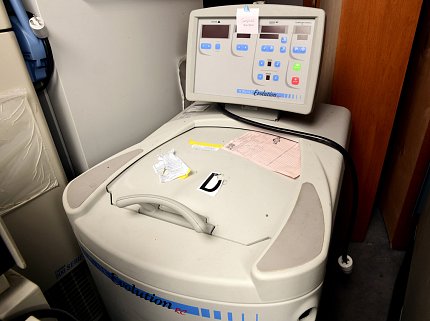NIEHS Scientists Help Visiting Fellow Establish Lab in Nigeria

Photo: Steve McCaw/NIEHS
When Dr. Temitope “Temi” Adedeji came to NIEHS in October 2019, he brought with him the desire to learn as much as he could so that he could transfer that knowledge to students back home in Nigeria. Five months later, the global pandemic temporarily put a halt to his plans. He has since completed his research and received an NIH grant. He will travel back to Nigeria with his own scientific equipment.
“It is wonderful that NIEHS intramural scientists have come together to donate critical scientific equipment to Dr. Adedeji,” said NIEHS scientific director Dr. Darryl Zeldin. “It will certainly help him start an independent laboratory in Nigeria and ensure his continued productivity.”
When a Plan Comes Together

Photo: Steve McCaw/NIEHS
Before Adedeji came to the U.S., he was a senior lecturer at the Federal University of Technology Akure in Nigeria. Since Nigeria doesn’t have many career opportunities for researchers, many young men and women interested in science must change fields or take whatever jobs they can find to make a living. Adedeji knew he could help change the situation.
“I wanted to make a difference by giving students and trainees the opportunity to have a better training experience,” said Adedeji. “If I could help two kids in the beginning, over time it could become the critical mass that snowballs into something special.”
He wanted up-to-date training in epigenetics, so he contacted Dr. Paul Wade, acting chief of the NIEHS Epigenetics and Stem Cell Biology Laboratory and head of the eukaryotic transcriptional regulation group. When Wade invited him to NIEHS as a visiting fellow, the first part of Adedeji’s plan was coming together.
Training in Epigenetics

Photo: Steve McCaw/NIEHS
A major interest of Wade’s group is how the Western diet, which is high in fat, influences colon cancer risk. Wade’s hypothesis is the carbon content of high-fat diets is an influencer of the epigenome. One of the ways to test this hypothesis is to use a high-fat diet that does not induce obesity, such as the ketogenic diet, which is high in fat but low in sugar.
Adedeji gladly took on the project and fed four groups of mice a specific dietary program: high-fat diet, ketogenic diet, control chow diet and a low-fat diet. He examined organ damage and took physiologic measurements such as weight and serum hormone levels of insulin. He also used Western blots to determine how histone modifications, particularly acylation, change as a function of diet throughout the genome.
Wade said before Adedeji leaves the lab, he’ll connect all the changes in the epigenome to the gene-specific level by doing an assay called “cut and tag.” It will identify the type of histone modification in every point in the genome as a function of diet.
“Adedeji is using techniques that we have implemented in our lab in the last year and testing a hypothesis that is central to our research,” Wade said.
Equipment Donations

Photo: Steve McCaw/NIEHS
Wade said that he knew it would be challenging for Adedeji to get scientific equipment in Nigeria, so he encouraged him to take smaller equipment from his lab that wasn’t being used. Wade then emailed all NIEHS research group leaders to ask whether they had older equipment headed for surplus, and several responded.
NIEHS Immunity, Inflammation and Disease Laboratory chief Dr. Michael Fessler was especially helpful since he had equipment designated for the institute’s warehouse that was no longer being used.
NIEHS inventory management officer Kim Jones gave Adedeji access to the surplus equipment and handled the paperwork to make sure the institute operated within NIH foreign donation guidelines.
“We are delighted to have played our small part in helping Temi plant these exciting scientific seeds in Nigeria,” said Fessler.
Collaboration to Continue
Adedeji is working on a research paper about his work and hopes he and NIEHS will work together in the future to improve the pipeline of Nigerian scientists. His long-term goal is to have Nigerian students come to NIEHS to take advantage of state-of-the-art training.
